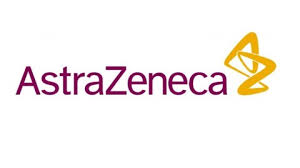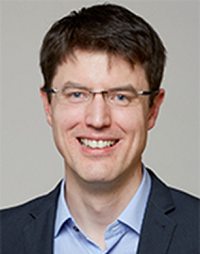 James Bull, AstraZeneca Chemistry Award, Imperial College, London, United Kingdom
James Bull, AstraZeneca Chemistry Award, Imperial College, London, United Kingdom
James Bull is a University Research Fellow at Imperial College London. He obtained an MSci degree and the Raphael prize from the University of Cambridge, then spent a year at GlaxoSmithKline. He returned to University of Cambridge to obtain his PhD under the supervision of Professor Steven Ley. In 2007 he joined the group of Professor André Charette as a postdoctoral fellow at Université de Montréal. He joined Imperial College London in 2009 as a Ramsay Memorial Research Fellow, and in 2011 was awarded an EPSRC Career Acceleration Fellowship. In January 2016, he was awarded a Royal Society URF. His research targets methods for the synthesis of new chemical motifs that may be practically applied in drug discovery, to provide new design elements and extend available chemical space.
Talk title: Synthesis of new chemical motifs for design options in drug discovery
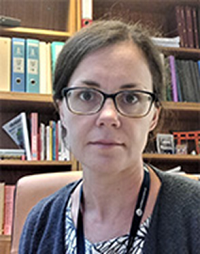 Ruth Webster, University of Bath, United Kingdom
Ruth Webster, University of Bath, United Kingdom
Ruth graduated with an MSci degree from the University of Strathclyde in 2007, she then completed her PhD in 2011 under the supervision of Professor Robin Bedford at the University of Bristol. Ruth then undertook 12 months of postdoctoral research in the group of Professor Laurel Schafer at the University of British Columbia, where she was a Commonwealth Postdoctoral Fellow. She was awarded a Bath Prize Fellowship in Catalysis in 2012, commenced a lectureship in 2014 and was awarded an EPSRC Early Career Fellowship in 2017. Ruth was promoted to Reader in 2019. Her research focuses on the use of well-defined iron pre-catalysts for the transformation of main group compounds.
Talk title: Iron catalysed deuteration reactions
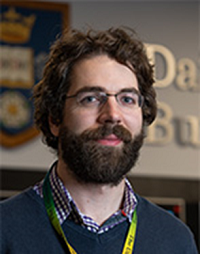 Ben Partridge, University of Sheffield, United Kingdom
Ben Partridge, University of Sheffield, United Kingdom
Dr Ben Partridge graduated with an MSci in Chemistry with Industrial Experience from the University of Bristol in 2007. He stayed at Bristol for his PhD, working with Prof. Varinder Aggarwal FRS, before moving to the University of California, Berkeley in 2011 for a post-doc with Prof. John Hartwig. From 2013 he worked with Prof. Hon Wai Lam at the Universities of Edinburgh and then Nottingham. He was appointed as Lecturer of Organic Chemistry at the University of Sheffield in June 2016.
Talk title: Cu-Catalysed Transformations of Alkylboronic Esters
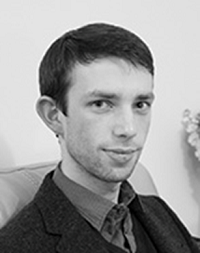 Liam Ball, Nottingham University, United Kingdom
Liam Ball, Nottingham University, United Kingdom
Liam graduated from the University of Bristol with an MSci in Chemistry in 2009. He remained at Bristol to study gold-catalysed oxidative arylation during his PhD (2009-2013) under the supervision of Dr Chris Russell and Professor Guy Lloyd-Jones FRS FRSE. Liam then moved with the Lloyd-Jones group to Edinburgh to conduct post-doctoral research into supported reagents for use in palladium catalysis. He was appointed an assistant professor of organic chemistry at the University of Nottingham in 2015, and was awarded a UKRI Future Leaders Fellowship in 2021. His research interests concern the development and mechanistic interrogation of new methods in synthesis and catalysis.
Talk title: Bismuth-mediated Arylation of Phenols
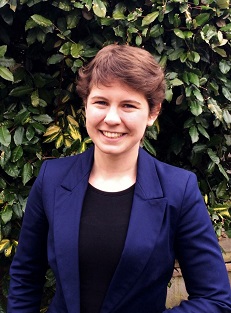 Miriam O’Duill , Nottingham University, United Kingdom
Miriam O’Duill , Nottingham University, United Kingdom
Miriam O’Duill received her D.Phil. in Organic Chemistry from the University of Oxford in 2016, where she carried out research on late-stage fluorination with Prof. Véronique Gouverneur. She spent two years as a DAAD postdoctoral fellow at the Scripps Research Institute, La Jolla, investigating selective catalytic functionalization of alkenes and alkynes with Prof. Keary M. Engle. In 2018, Miriam began her independent career at NUI Galway, before accepting a position as Assistant Professor at the University of Nottingham in 2020. Her research interests include transition-metal catalysis and late-stage functionalization.
Talk title: Catalysis for Late-Stage Functionalisation
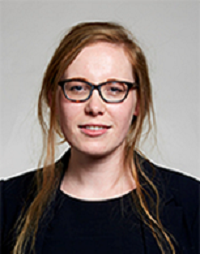 Beatrice Collins , University of Bristol, United Kingdom
Beatrice Collins , University of Bristol, United Kingdom
Beatrice studied Natural Sciences at the University of Cambridge and was awarded an MSci in 2009. She stayed at Cambridge to undertake PhD studies under the supervision of Professor Matthew Gaunt in the field of transition metal catalysis and in 2014 moved to the University of Groningen in the Netherlands, where she spent two years undertaking postdoctoral research with Professor Ben Feringa in the field of molecular switches and motors. In 2016 she moved back to the UK to take up a postdoctoral research position in the group of Professor Varinder Aggarwal FRS at the University of Bristol. In 2018 Beatrice was awarded a Royal Society University Research Fellowship, which has allowed her to establish her independent research career at the University of Bristol. In early 2021 Beatrice was appointed to a proleptic lectureship at the University of Bristol. Research in the Collins group is focused on using modern synthetic methodologies for the design and development of autonomously operating molecular motors and on understanding the out-of-equilibrium regimes under which these systems operate.
Talk title: Metals and Molecular Machines: Studies Towards Autonomous Molecular-Level Motion
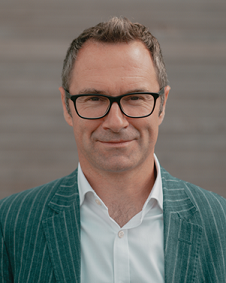 Darren Dixon, University of Oxford, United Kingdom
Darren Dixon, University of Oxford, United Kingdom
Darren J. Dixon is Professor of Chemistry at the University of Oxford. He obtained his BA, MA and D. Phil (supervised by Professor Stephen Davies) from the University of Oxford. After a postdoctoral fellowship with Professor Steve Ley FRS he was appointed to the Staff of the Department of Chemistry, University of Cambridge in 2000. In 2004 he took a Senior Lectureship at The University of Manchester and was promoted to Reader in 2007. In 2008, he moved to his current position at Oxford where he is also the Knowles-Williams Tutorial Fellow in Organic Chemistry at Wadham College. His research is centred on the development of new catalyst-enabled synthetic methodologies and their application to the synthesis of structurally complex scaffolds, natural products and molecules of biological significance. His honors include an EPSRC Leadership Fellowship, the RSC Catalysis in Organic Chemistry Award, the AstraZeneca Research Award and Novartis Lectureship.
Talk title: New Broad Scope Catalytic Strategies for Amine and Complex Natural Product Synthesis
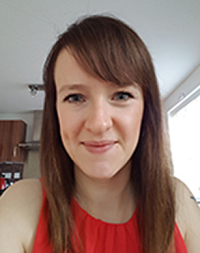 Laura Evans, AstraZeneca, United Kingdom
Laura Evans, AstraZeneca, United Kingdom
Laura graduated from the University of Liverpool in 2009 with a 1st Class MChem degree in “Chemistry with a Year in Industry” (GSK Harlow). Laura went straight to Eisai after graduating as a Senior Researcher and was there for just over 4 years in the area of Neuroscience. After Eisai, she moved to BioFocus (now Charles River) for 8 months before starting at AstraZeneca in Cambridge in 2014 working in Oncology as a Senior Research Scientist.
Talk title: Allosteric Covalent Inhibitors of the Mutant GTPase KRASG12C
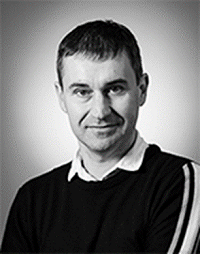 Andy Campbell, AstraZeneca, United Kingdom
Andy Campbell, AstraZeneca, United Kingdom
Andrew Campbell obtained his undergraduate degree at the University of Edinburgh. Following 2 years at Roche as a medicinal chemist he moved to York University under the supervision of Prof. Richard Taylor. After a Postdoc with Prof. Tony Barrett at Imperial College he embarked on his industrial career at AstraZeneca at Alderley Park in 2001 working on a wide range of drug discovery projects from hit identification to lead optimisation and C1 delivery. Following a move to AstraZeneca's Global Chemical Development department at Macclesfield in 2008, he was project lead on a number of projects before returning on secondment to Alderley Park to start a new role in Discovery catalysis optimisation in 2010. On return to Macclesfield in 2011, he has led the Catalysis and HTE group through a period of change and growth to where HTE is now considered as an integral part of process development.
Talk title: The development and impact of High Throughput Experimentation (HTE) within AstraZeneca
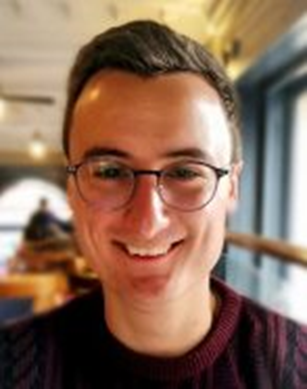 Tim Aldhous, University of Bristol, United Kingdom
Tim Aldhous, University of Bristol, United Kingdom
Tim graduated from the University of Sheffield in 2018 with an MChem in Chemistry, undertaking a final year project under the supervision of Professor Joseph Harrity. He then joined the Chemical Synthesis CDT at the University of Bristol and began his PhD studies under the supervision of Professor John Bower. In 2020, the group moved to the University of Liverpool. Tim's PhD project is focused on the development and applications of asymmetric alkene hydroarylation reactions.
Talk title: Development of an Asymmetric Alkene Hydroheteroarylation Methodology




